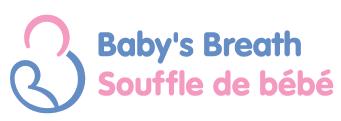Research Grant Project
Robert’s Program is a clinical service at Boston Children’s Hospital and Harvard Medical School that is offered for families who have lost a child suddenly and unexpetedly, without apparent cause. Robert’s Program focuses on sudden unexpected death in pediatrics (SUDP), which encompasses sudden infant death syndrome, sudden unexpected infant deaths (SUID), and sudden unexpected death in childhood (SUDC). The program’s efforts are directed at helping a family understand the reasons for their child’s death to the greatest extent possibe, while supporting them through a very difficult time. The interdisciplinary team includes clinicians and scientists from the fields of general pediatrics, neurology, genetics, cardiology, metabolism, endocrinology, general pathology, neuropathology, palliative care, and bereavement support. The program takes a precision medicine approach to diagnose underlying vulnerabilities that may have contributed to the child susceptibility to sudden death, including extensive phenotyping and genetics. Even when no direct cause is established, families who have participated in Robert’s Program report comfort from receiving a thorough investigation and participating in a leading research effort.
Baby’s Breath has received funding and will cover the cost of enrollment for Canadian families. Families will receive complete genetic sequencing and phenotyping. Results and conclusions will be shared with the families via teleconference call. If you would like to participate, click on the link to register. Someone from Baby’s Breath will be in touch to go over the details.
News Article
United States Consumer Product Safety Commission – Seated Products
Could SIDS be caused by unrecognized brain infections?
Video Analyses of Sudden Unexplained Deaths in Toddlers
Genetics Determinants of Sudden Unexpected Deaths in Pediatrics
New evidence that children dying form SIDS and SUDC are not “normal”.
Researchers identify potential genetic link in sudden infant deaths
New research suggests a potential genetic mutation may play a role in some SIDS cases.
Researchers Warn Parents About Using Monitors to Prevent SIDS Following Study
This news article is based on a research letter that was published in the Journal of American Medical Association (JAMA).
New SIDS research to study protein link
This news article published by the University of Adelaide discusses an Australian study on SIDS. It looks at whether changes in brain levels of Amyloid Precursor Protein (APP) in infants may be a marker for potentially deadly breathing difficulties.
SIDS research discovers how a brain abnormality may cause infant death
This Boston Business Journal article discusses new research by Dr. Kinney and her team published in the journal Pediatrics which appears to suggest a brain abnormality as one cause of SIDS.
Date: November 11, 2013
Brainstem abnormalities found in SIDS infants, in all kinds of sleep environments
Investigators at Boston Children’s Hospital report that many infants dying suddenly and unexpectedly, in all kinds of sleep environments, have underlying brainstem abnormalities and are not all normal prior to death.
Date: November 11, 2013
Review Articles
Dysfunction of NaV1.4, a skeletal muscle voltage-gated sodium channel, in sudden infant death syndrome: a case-control study
Results of a UK study which found rare mutations associated with impairment of the breathing muscles were more common in babies who had died from SIDS than in healthy infants.
“The Grief of Mothers After the Sudden Unexpected Death of Their Infants”
The results of a study conducted by Dr. Rick Goldstein, Program Director of the Robert’s Program on Sudden Unexpected Death in Pediatrics and Assistant Professor of Pediatrics, Harvard Medical school published in the American Academy of Pediatrics’ journal, Pediatrics.
Risk factors for SIDS
JAMA Pediatrics Rebecca F. Carlin, MD; Rachel Y. Moon, MD. Published December 2016
Molecular Autopsy for Sudden Unexpected Death
JAMA Pediatrics Ali Torkamani, PhD, Evan D.Muse, MD, PhD, Emily G. Spencer, PhD, Manuel Rueda, PhD, Glenn N.Wagner, DO, Jonathan R. Lucas, MD, Eric J. Topol, MD. Published October 2016.
The Disappearance of Sudden Infant Death
JAMA Pediatrics Ernest Cutz, M.D. FRCPC. Published February, 2016
The Brainstem and Serotonin in the Sudden Infant Death Syndrome
Annual Review of Pathology: Mechanisms of Disease Hannah C. Kinney, George B. Richerson, Susan M. Dymecki, Robert A. Darnall, and Eugene E. Nattie Published May 29, 2009
The Sudden Infant Death Syndrome
The New England Journal of Medicine Hannah C. Kinney, M.D., and Bradley T. Thach, M.D. Published April, 2009
Contact
PO Box 5005
St. Catharines, Ontario L2R 7T4
National: (800) 363-7437
Local: 905-688-8884
Fax: 905-688-3300
Email: info@babysbreathcanada.ca
